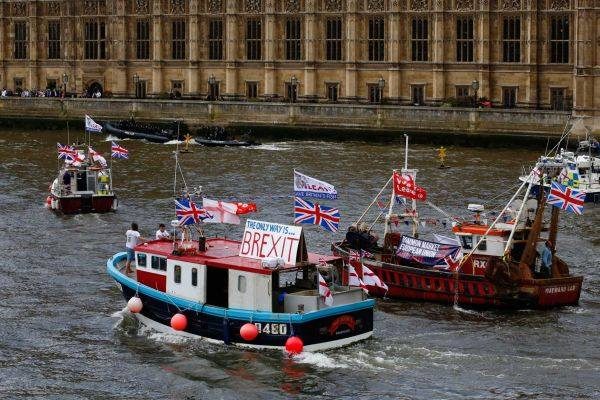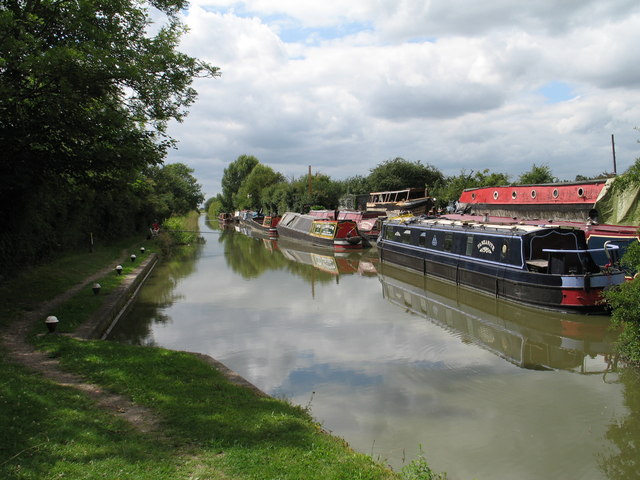British Marine: Brexit still unclear on VAT paid status on boats and goods
British Marine has expressed concerns about the lack of clarity on VAT paid status on boats and goods in Brexit White Paper
19 July 2017
British Marine is calling for clarity with regards to ‘VAT paid status’ or ‘status of Union Goods’ on boats and goods once the UK leaves the European Union.
In article published on its website, British Marine has pointed out that the Government’s White Paper, published last week, did not tackle the issue of VAT on boats and goods.
Whilst the organisation admits that some issues were addressed in the document, such as future investments and job protection in several sectors, including the marine industry, many key areas of concern still need clarifying.
The article states: “British Marine’s concerns were heightened further following the highly publicised debates in Parliament this week on the Government’s Taxation (Cross-border Trade) Bill. Four key amendments to this Bill were tabled by the Eurosceptic European Research Group of Conservative MPs in opposition to elements of the customs proposal contained in the White Paper.
“One amendment in particular (number 73) was of significant interest/concern. This amendment prohibits the UK from staying in the EU’s VAT area, creating a VAT border between the UK and EU after Brexit. This amendment means that, without a favourable negotiated agreement between the UK and the EU, boats and goods in the UK which have already been placed on the market in the EU could be subject to VAT if sold across the new UK/EU border.”
MPs voted to pass the amendement and the Bill will go tho the House of Lords in the Autumn.
The article concludes: “British Marine, working closely with members and partners, such as the RYA, has spent the last 18 months briefing industry’s concerns in to various Ministers and officials across multiple departments, as well as a number of friendly and relevant MPs. The whispers coming out of HM Treasury are that the Government understands the marine industry’s concerns on VAT (indeed these concerns are shared across many sectors) and it is a priority for them to develop a proposal that safeguards these industries. However, as these recent publications and updates show, the UK Government is far from putting forward clear plans on how it intends to achieve this. In the coming months British Marine will continue in its role to push Government to deliver a suitable solution that safeguards the industry and member businesses.”
23 June 2017
British Marine says it will push for the free movement of labour after Brexit, describing skilled EU workers as a “vital” part of the UK marine industry.
It is one year ago today that the historic decision to leave the EU was made, and the British Government has now started Brexit negotiations.
In a statement, British Marine, which represents the leisure, superyacht and small commercial marine industry, said: “We believe that there are a significant number of skilled EU workers in the UK marine industry, playing a vital part in the success of our industry.”
“British Marine has been clear that we need to maintain their rights to work in the UK, so that the current well publicised skills gap in the industry is not worsened”.
Continued below…
Skills gap is “holding back” Britain’s boatbuilding industry
Research by British Marine has revealed that Britain's marine industry is being held back because of the inability to recruit…
British Marine welcomes Thames Water’s record £20m fine for dumping sewage in river Thames
Thames Water has received the record £20.3 million fine after polluting the river and beaches by dumping untreated sewage
British Marine’s senior external relations executive, Andrew Harries said they will be scrutinising the Brexit Bills announced in the Queen’s Speech on Wednesday (21 June). It will also be examining the impact of any change of VAT and Customs procedures and EU legislation.
“These included Bills on EU legislation (the Repeal Bill), trade, customs and immigration. Our membership and the wider UK marine industry have a significant interest in being able to trade around the world, while maintaining a strong relationship with our largest market, therefore we will be scrutinising the detail of these Bills once published,” he stressed.
He said that to “ensure that the marine industry’s voice is joined up with the wider business community”, British Marine will maintain membership of the Confederation of British Industry (CBI), which is pushing for a clear strategy on achieving new trade deals and delivering “frictionless trade”.
“British Marine echoes these comments and is working closely with the Departments for Business, International Trade and HM Treasury to ensure that the needs of our members are reflected in the UK’s negotiating position,” said Harries.
British Marine will be focussing on these Brexit issues including:
- The value of free movement of labour – the UK’s marine industry employs a significant number of EU nationals in a variety of skilled, but non-graduate, roles. British Marine are keen to ensure that the industry maintains access to this skilled labour and is not negatively impacted by the Government’s focus on skilled, graduate labour.
- VAT and Customs procedures – British Marine are working with HM Revenue & Customs (HMRC), HM Treasury and members of British Marine Boat Retailers & Brokers to understand the movement of boats through the UK and to consider tax and customs arrangements post-Brexit.
- A review of EU legislation – with the Great Repeal Bill set to place around 19,000 pieces of EU regulation into UK law, British Marine are assessing where opportunities exist to amend or drop some of this to benefit the UK marine industry
British Marine has more than 1,600 different members including Princess Yachts, Berthon and Pendennis Shipyard in Falmouth.
3 April 2017
The RYA says it is particularly concerned about the prospect of border controls and restrictions on duration of stay, both for individuals and vessels wishing to visit Europe, post Brexit.
It is also concerned about the future ability of recreational craft and their contents to travel freely throughout Europe and the ability of RYA qualification-holders to work in the EU territory.
It comes as Article 50 was triggered on 29 March 2017, some nine months after the historic Brexit vote to leave the European Union (EU).
Now that Article 50 has been triggered, the UK has two years to negotiate its exit.
It cannot be stopped except by unanimous consent of all EU member states.
New Anglo-French agreement to boost marine tourism post Brexit
Any negotiated exit deal must be approved by a “qualified majority” of EU member states and can be vetoed by the European Parliament.
“Clearly, many of the regulatory challenges currently faced by British recreational boaters have an EU dimension – such as red diesel, border controls, invasive non-native species, biocides, and European marine protected areas,” said the RYA.
“The British exit from the EU might have an impact on all of these issues, but the nature and extent of that impact will remain unclear until the exit negotiations are underway,” said the association.
The RYA said it will lobby the UK government and European institutions “to reduce the regulatory interference with boating”.
Britain’s superyacht industry booms thanks to weak pound
“We will continue to engage with officials and politicians in an effort to minimise any impact on recreational boaters and to identify opportunities for improvement,” it said.
“Whatever the UK’s future relationship with Europe, we will work hard to ensure that recreational boating is as unfettered as possible,” stressed the RYA.
It said it would keep members updated and advise on how boating might be affected as information becomes available, and make sure that legislators, regulators and other authorities took recreational boating activity into account.
The RYA also stated that it worked on a wide range of issues affecting boating that do not currently have an EU dimension.
“For example, the requirement for private recreational skippers to hold qualifications when they visit other countries is generally specified in national legislation, and is nothing to do with the EU, It said.
“Domestic UK issues such as national marine protected areas (including MCZs), offshore renewable energy installations, carriage and disposal of flares, lifejackets, light dues, and alcohol limits, are unlikely to be affected by our exit from the EU,” added the RYA.
24 June 2016
It is too early to tell what impact the decision to leave the European Union will have on the marine industry.
What is clear is that there will be no immediate change to trading arrangements or legislation, or to free movement within the EU.
British Marine, which represents the leisure, superyacht and small commercial marine industry, has always remained neutral on the decision to leave or remain as part of the EU.
The organisation has more than 1,600 different members including Princess Yachts, Berthon and Pendennis Shipyard in Falmouth.
In a statement, the organisation said: “The result of the referendum has shown that the majority of the British public who voted wish to leave and during the forthcoming transition period, British Marine will inform and advise all its members and represent the interests of the industry to Government.”
It continues: “It is important for members to note that there will not be a change to legislation or trading arrangements for at least two years whilst the Government negotiates the withdrawal agreement with the EU.”
“British Marine will continue to ensure our members are informed about the implications for their businesses and will do so in representing industry concerns to Government throughout this transitional period,” the statement concludes.
In April, Superyacht UK, which represents the interests of the industry both at home and internationally, announced growth in the sector.
According to the Superyacht UK survey, the industry grew by more than 10% to £542 million in 2014/15. Out of those surveyed, 48% reported an increase in profits. There was also a 6.9% increase in jobs.
Meanwhile, the Royal Yachting Association (RYA) has said it will continue to lobby European institutions to ensure minimum regulatory interference for boaters.
In a statement following the referendum on 23 June, it said the process to leave the EU will take time.
“The EU treaties will cease to apply to the UK from the date of entry into force of the agreement, or within two years of the notification of the withdrawal. The (European) Council may also decide to extend that period,” said the statement.
“Until such time, in terms of the advice regarding boating abroad on the RYA website, UK residents remain EU residents, the UK remains in the EU for VAT, Customs and Excise purposes and there should be little noticeable difference when sailing between the UK and other EU countries.”











